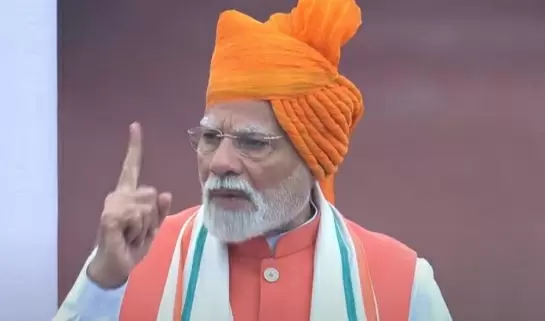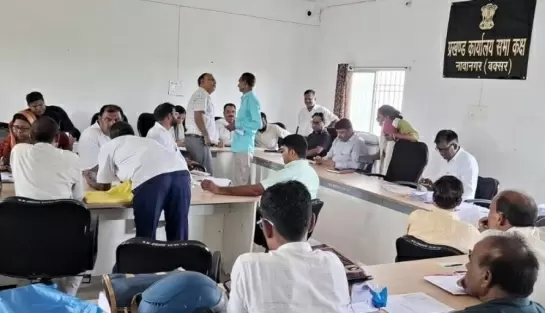Now, PSUs to rescue government's failing strategic sale plan
05-May-2019
Cash-rich central public sector enterprises (CPSEs) will come to the rescue of government strategic sale programme with tepid interest coming from the private sector to take over controlling interest in some of these sick and loss making companies.
The Department of Investment and Public Asset Management (DIPAM) officials said that next round for sale of majority government holding in companies will be offered to willing CPSEs proposing to give a good valuation for Centre's stake. This, officials believe, would eliminate the need to go through a complex sell-off process with no result coming at the end.
Sources said the DIPAM is enthused by the recent Rs 4,800 deal struck between GAIL and an IL&FS subsidiary to take over latter's 874 MW of operational wind projects.
Officials believe, that if similar process is adopted for a few other CPSEs that could provide synergy to existing operations of a state-run company, the sell off process would not only be smooth but government could also get better valuation for its shares.
The government's strategic sale initiative has not taken off well as a few cases that were brought out under the plan failed to attract investors. The latest being Pawan Hans, where the government offered to sell its entire 51 per cent stake to strategic investors last month. The bidding process failed to attract any investors.
Last year Air India's disinvestment bid had also fallen flat for want of bidders. Similarly, previous attempts to sell other loss making entities such as Scooters India, the makers of the popular Vikram brand of three wheelers, have failed to move in the last one year.
"Several of the sick and loss making CPSEs suffer from closed-down operations and excessive manpower. If in some way these issues could be sorted out before an entity is put up under strategic sale route, the valuations and interest would be high. Getting PSU on board is a good plan, but government should allow its companies to take such investment decisions on their own rather than pushing them into taking any uneconomic move," said a former cabinet secretary asking not to be named.
DIPAM has drawn up plan for strategic sale in 35 PSUs, including Air India, Air India subsidiary AIATSL, Dredging Corporation, BEML, Scooters India, Bharat Pumps Compressors, and Bhadrawati, Salem and Durgapur units of steel major SAIL.
While any PSUs interest in some of the companies on the strategic sale route is likely to be low, a few offers could be tempting for companies looking to expand their operations and scouting for suitable land for projects.
Companies such as Scooters India, Indian Drug and Pharmaceuticals Ltd (IDPL) and a few others are sitting on huge tracts of land that can be used by cash rich PSUs to expand their own operations or carry out any diversification plan. IDPL is sitting on 834-acre of prime land in Rishikesh while Scooters India has about 150 acre of land near Lucknow.
"The land of a few sick PSUs could be commercially utilised by other cash-rich PSUs for their expansion plants or other activities. This PSUs-led disinvestment plan for sick units would work best," said a government official privy to the development.
The government is already planning to rope in state-run developers such as NBCC (India) Ltd to maximise value from the sale of sick and loss-making public sector undertakings (PSUs) by redeveloping their surplus land and selling them separately for commercial gains.
However, not all cash rich PSUs are happy about the government's proposed plan. They feel that loss making companies should not be imposed on them if it fails to attract any investor.
There have been examples how such acquisition plan have shaken even the most profitable and stable CPSEs. ONGC was a debt free company till it had to buy entire government's share in HPCL. Now the company is not only left with about Rs 14,000 crore of debt but its cash and bank balance plummeted to a mere Rs 167 crore in September 2018, down from Rs 9,511 crore just over a year back. Now if, Pawan Hans, (where ONGC also owns 49 per cent stake) is thrust upon it, the company without cash will have no other option but to borrow more from the market. IANS
Massive Voter List Fraud Unearthed in Madhya Pradesh, Says Bhaskar English Report
Tejashwi Yadav Says Two NDA leaders Hold Dual Voter IDs, Questions EC’s Impartiality
Once Jayalalithaa’s Delhi Voice, V. Maitreyan Joins DMK
No Pillars, Just Water: China’s Floating Bridge Draws Tourists
BJP vs BJP Contest at Constitution Club: Rudy Extends Two-Decade CCI Tenure









